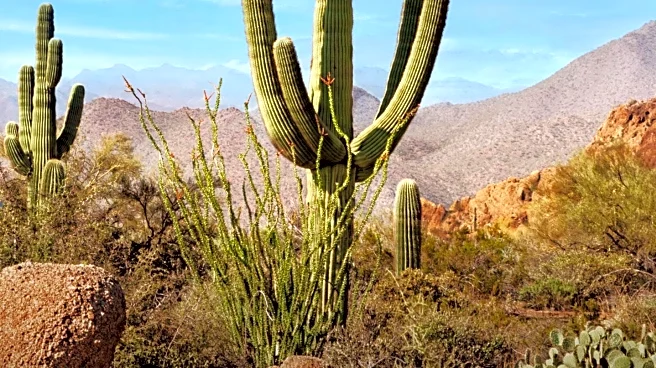What is the story about?
What's Happening?
In Mexico, the biznaga cactus, a key ingredient in the traditional dish chile en nogada, is facing extinction. The cactus is now illegal to buy due to its endangered status, raising concerns about the preservation of cultural traditions. Despite the legal restrictions, the demand for the candied cactus remains high, highlighting the challenges in balancing conservation efforts with cultural practices.
Why It's Important?
The endangered status of the biznaga cactus underscores the broader issue of biodiversity loss and its impact on cultural heritage. As traditional ingredients become scarce, there is a risk of losing cultural practices that have been passed down through generations. The situation highlights the need for sustainable practices that can preserve both the environment and cultural traditions.
What's Next?
Efforts to conserve the biznaga cactus may involve stricter enforcement of legal restrictions and the development of sustainable cultivation practices. There may also be initiatives to find alternative ingredients that can preserve the cultural significance of chile en nogada without compromising conservation efforts. The situation may prompt discussions on how to balance environmental conservation with cultural preservation.
Beyond the Headlines
The case of the biznaga cactus raises ethical questions about the responsibility to protect endangered species while maintaining cultural traditions. It highlights the complex relationship between humans and the environment, and the need for innovative solutions that can address both conservation and cultural preservation. The situation may lead to increased awareness and advocacy for sustainable practices in cultural heritage.















